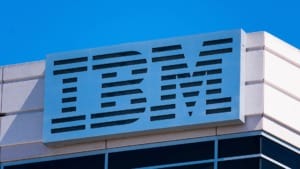DeepSeek’s AI profit claims raise questions about actual earnings
Chinese AI firm DeepSeek claims 545% profit margins but admits actual revenue is much lower. Can its projections become reality?

Chinese artificial intelligence startup DeepSeek has made bold claims about the profitability of its AI models, suggesting they could generate huge profits—but with some major caveats.
In a recent post on X, the company stated that its online AI services have a “cost-profit margin” of 545%. However, these figures are based on what DeepSeek calls “theoretical income,” meaning they do not necessarily reflect real-world earnings.
🚀 Day 6 of #OpenSourceWeek: One More Thing – DeepSeek-V3/R1 Inference System Overview
— DeepSeek (@deepseek_ai) March 1, 2025
Optimized throughput and latency via:
🔧 Cross-node EP-powered batch scaling
🔄 Computation-communication overlap
⚖️ Load balancing
Statistics of DeepSeek’s Online Service:
⚡ 73.7k/14.8k…
The company provided more details in a GitHub post, discussing ways to improve performance and efficiency while keeping costs down. DeepSeek revealed that during 24 hours if all usage of its V3 and R1 models had been billed at R1 pricing, its daily revenue would have reached US$562,027. Meanwhile, leasing the required graphics processing units (GPUs) would have been just US$87,072.
Revenue remains significantly lower than projections
Despite these figures, DeepSeek acknowledged that its revenue is “substantially lower” due to several factors. These include discounted pricing during off-peak hours, the lower cost of its V3 model, and the fact that only some of its services are monetised. The company’s web and app access remains free, limiting the amount of income it can generate.
Even if DeepSeek were to remove these discounts and monetise all services, usage levels would likely decline, making it difficult to sustain the predicted profit margins. As a result, these figures appear to be more of a projection of possible future profitability rather than a reflection of the company’s current financial situation.
DeepSeek’s rise in the AI industry
DeepSeek has been making headlines in the AI sector, particularly as discussions continue about the costs and profitability of AI technology. The company gained attention in January when it launched a model that reportedly performed on par with OpenAI’s o1 on certain benchmarks. This achievement was notable as DeepSeek developed its model at a much lower cost and without access to the most powerful AI chips restricted under U.S. trade policies.
The emergence of DeepSeek sent shockwaves through the tech industry, leading to a decline in tech stocks and prompting analysts to question AI spending. The company’s app briefly overtook OpenAI’s ChatGPT as the top AI application on Apple’s App Store. However, it has since dropped from the general rankings and is now placed sixth in the productivity category, behind ChatGPT, Grok, and Google Gemini.
As DeepSeek expands its AI capabilities, the industry will watch closely to see whether its theoretical profit margins can become a reality.
















